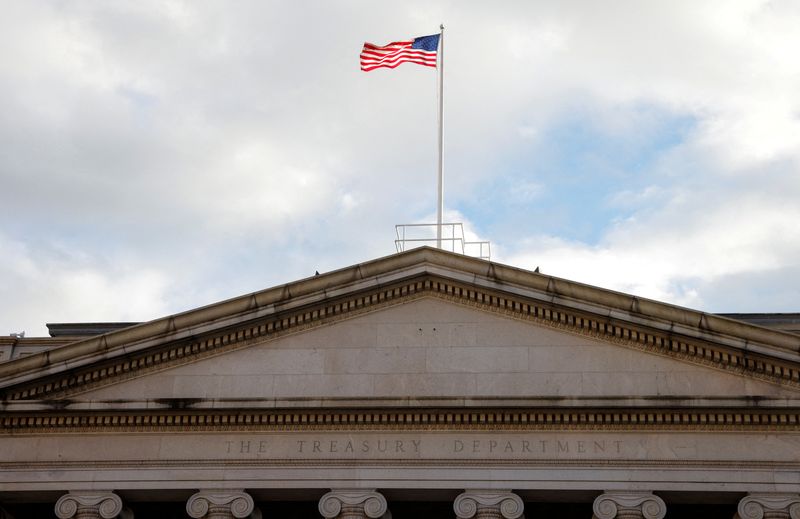By Davide Barbuscia
NEW YORK (Reuters) - A sharp repricing in U.S. interest rate cut expectations could give more fuel to a searing bond rally triggered by weakening economic data, as investors grapple with the possibility the Federal Reserve may need to loosen its tight grip on the economy much faster than anticipated to avoid a recession.
Earlier this week investors were assessing whether the U.S. central bank may have been too late in shifting to a less restrictive posture when it held borrowing costs steady at its July rate-setting meeting. That changed to drastically late during the week, as manufacturing data on Thursday and weak employment data on Friday sparked recession fears and a sharp repricing of monetary policy for the rest of this year.
"The rising unemployment rate says the Fed has fallen behind the curve," said Tony Farren, managing director at Mischler Financial Group.
Traders in futures contracts tied to the Fed's overnight policy rate were betting on about 120 basis points in interest rate cuts for the rest of this year, nearly double what was priced in prior to the Fed's meeting on Wednesday. Treasury yields, which move inversely to prices, dropped sharply with two-year yields hitting their lowest since March last year and benchmark 10-year yields at their lowest since December.
The 2/10 yield curve, which has been continuously inverted for more than two years, was at minus 9 basis points - the closest it has been to turning positive since the inversion started. In the last four recessions, that curve had turned positive a few months before the economy started contracting.
Data on Friday showed the unemployment rate rose to 4.3%, marking an unexpected deterioration in the labor market that had so far shown surprising resilience during the Fed's aggressive rate-hike campaign. The two-tenths of a percentage point rise in the jobless rate triggered the so-called Sahm rule, a historically accurate early indicator of recession, according to analysts.
The rule, which aims to flag the onset of recession more quickly than the current process that formally dates business cycles, identifies signals related to the start of a recession when the three-month moving average of the national unemployment rate rises by 0.50 percentage point or more relative to its low during the previous 12 months. On Friday that indicator rose to 0.53 percentage point.
"This rule is empirical and it has literally never failed," Alfonso Peccatiello, chief executive of global macro investment strategy firm The Macro Compass said in a note. "Of course 'this time can be different', but markets are now forced to ask the recession question louder."
The slowdown in July employment followed data showing a surprise slump in U.S. manufacturing last month, which had already pushed Treasury yields to multi-month lows on Thursday.
"Thursday was the first wake up call about recession risk and today there's another one as people start to believe in the data more," said Zhiwei Ren, portfolio manager at Penn Mutual Asset Management, who has been reducing equity exposure over the past few days.
"People are rushing into recession trades," he said. "We went from 'Goldilocks' to recession in one week," referring to the Goldilocks scenario of lower inflation and stable growth that has supported asset prices this year.
Others in the market struck a more cautious tone, with some analysts observing that the underlying labor data for July were not as weak as the headline numbers suggested.

U.S. bond giant manager PIMCO said in a note the data strengthened expectations for a first rate cut in September and raised the possibility of a faster pace of rate cuts going forward, but the economy was still holding up.
"There were some caveats in the details, which continue to paint a picture of a slowing but not yet crashing economy," said Tiffany Wilding, managing director and economist.